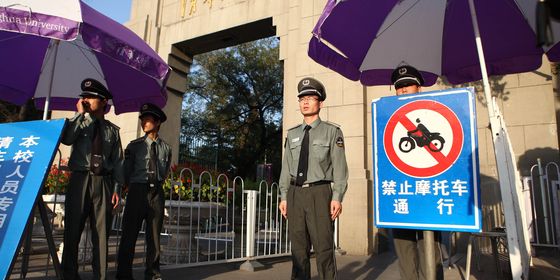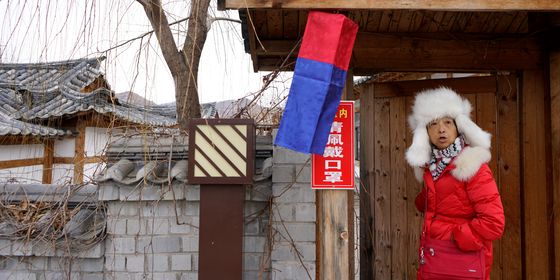From rotting melons to people smuggling, here are some lesser-known economic impacts of the Covid-19 pandemic
Covid-19 has swiftly choked off retail, restaurants, entertainment, and supply chains around the world. With an estimated 1.38 trillion RMB hit to the Chinese economy, according to Tsinghua economist Zhu Min, it’s difficult to find an industry that has escaped the blight (unless you work in medical fields, the internet, or “essential services”).
Faced with the need to work from home for months, and the closure of international borders to passengers and freight, lesser-known industries from melon transport to online gambling have been reacting to the changing reality. Here, TWOC introduces four little-discussed sectors impacted by the pandemic:
Safe shelter
The Women’s and Children’s Rights Defense Association in Hubei province recorded 175 domestic violence cases in February 2020, double that of January and three times that of the same period last year. The organization received two to ten calls a day on their domestic violence hotline in Jianli county.
“Families are spending more time together, unable to go outside, unable to pursue entertainment; psychological resilience decreases, and heightened anxiety drives conflict,” explained Wan Fei, the head of the association, in an interview with Southern Weekend.
The organization has developed a task force of 80 people including counselors, lawyers, and police, to respond to domestic violence calls with psychological support, legal aid, and the arrangement of hotel asylum. At the same time, Wan noted, “Under the epidemic, our staff is limited, we can’t keep up. Social organizations are also involved in disaster relief.”
Fermenting fruit
As melons and bananas ripened in February and March, trucks at the border between Laos and Myanmar were backed up in kilometers-long traffic jams. Unable to get across to China in time, fruit rotted in their fields and cargo beds.
Since last July, after watermelons became the second fresh fruit (after bananas) to be allowed import from Laos into China, many Chinese have flocked across the border to farm these fruits. However, rather than the large surge in demand, Tao Dingkang, a melon farmer in Laos, told the Vientiane Times that profits have dropped dramatically this year. Crucially, Chinese truckers were unable to cross the border to pick up the fruits, as Laos has blocked all Chinese visas except B2 business visas.
The Myanmar Golden Phoenix Chinese News Agency reported that the watermelon and muskmelon industries had suffered 50 million USD in losses by the end of February. Wu Naiwen, chairman of the Myanmar Watermelon and Melon Growers Association, said that shipments that sold for 65,000 RMB last year could only be sold for half the price this year.
Baccarat bust
“I was bored at home during the epidemic,” a man surnamed Wang explained to Changsha TV station Zhengfa Pindao, “so when I saw those gambling sites on the internet, I clicked in and started playing.”
The white-collar worker lost 1 million RMB on the online casino game Baccarat before checking into the Hunan Provincial Second People’s Hospital for treatment. Zhou Xuhui, head of the addiction department, explained that the number of people coming to the clinic due to gambling addiction has “increased significantly.” She suggests to the public, “During the epidemic, you must reasonably arrange your work and life” and “cultivate some hobbies.”
The Ministry of Public Security has recognized the increased vulnerability of the public to online gambling during quarantine, publishing a “Notice on Strictly Combating Cross-Border Gambling and Telecommunication Network Fraud Crimes during the New Coronavirus Pneumonia Epidemic,” which called for stricter police and immigration controls.
Risky return
As the coronavirus swept into Myanmar, many Chinese working abroad decided to head home. But there was one problem: Having entered Myanmar illegally across the mountainous 2,186-kilometer border, they had to return the same way.
With border security amped up due to fears of undetected infections entering China, the cost of a smuggled trip from Myanmar rose from 200 or 300 RMB to 1,500 RMB, according to some locals. The trip often involves side roads circumventing national highways, and border crossings through remote rubber plantations.
On March 30, a bus was intercepted in Yunnan’s Dehong Dai Jingpo Autonomous Prefecture carrying 49 Chinese who had gone abroad to gamble, and employed a smuggling agency to carry them back into China. Over the last two months, border police in Xishuangbanna Dai Autonomous Prefecture have arrested 35 smugglers, 56 people who came into China illegally, and 26 who wanted to leave illegally.
Cover image from Pikrepo












